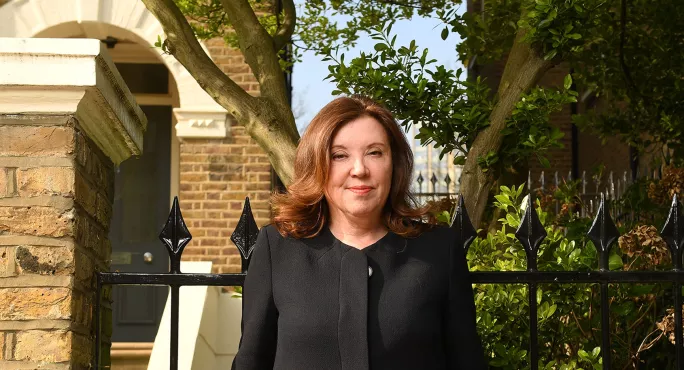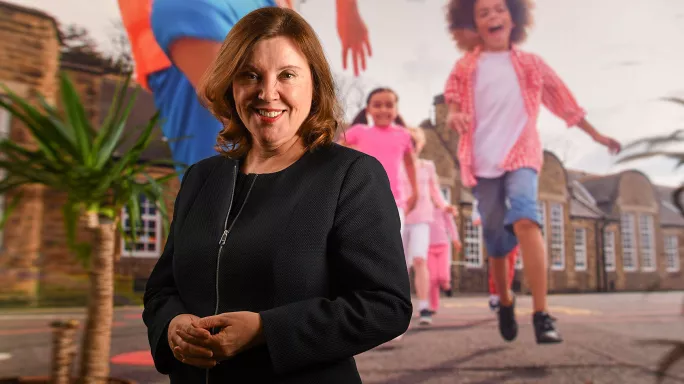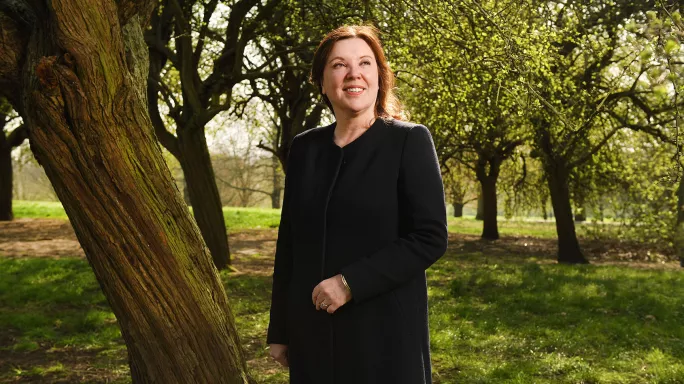De Souza: Heads can’t tackle absence crisis on their own

School leaders must not be left to deal with the pupil attendance crisis “on their own”, the children’s commissioner for England has warned.
Dame Rachel de Souza said she is “very concerned” that heads are not getting the support they need to tackle growing levels of school absence, widely recognised as a major problem across the country.
Speaking to Tes after holding a series of regional roundtables on attendance over the summer, the children’s commissioner said it had become clear that the joint working needed at a local level to tackle the problem “isn’t happening”.
Dame Rachel used her interview with Tes this week to call for a “complete focus” on attendance for “at least two years”, adding: “If we don’t do something now, everybody will regret it.”
- Dame Rachel de Souza: Attendance crisis ‘becoming normalised
- Attendance: What’s gone wrong and how can we fix it?
- DfE plans:7 changes on attendance to know about
The children’s commissioner’s intervention on the attendance crisis comes amid widespread concern over high pupil absence levels since the pandemic.
The level of persistent absence - where pupils miss 10 per cent or more of school sessions - was double that seen in the year before the pandemic, according to government figures. In 2022-23, more than one in five (22.3 per cent) pupils were persistently absent, compared with just 10.9 per cent in 2018-19.

Dame Rachel said she proposed the idea of regional roundtables last term at an Attendance Action Alliance meeting - a group formed by former education secretary Nadhim Zahawi in 2021 as part of an effort to “supercharge efforts to improve school attendance”.
Three were held this summer across Birmingham, London and Hull and North Lincolnshire, bringing together representatives from local authorities, schools, the police and the NHS.
Dame Rachel said the regions were selected as they had “some of the most challenging figures” on attendance and faced a variety of problems.
Joint working on attendance ‘isn’t happening’
Asked whether the roundtables had provided any new insights, Dame Rachel told Tes: “What I learned was just how the joint working that we really need to happen isn’t happening on attendance. I was very concerned.”
Dame Rachel said it was “so valuable” for children’s services and headteachers “to hear from health [experts] about what they’re doing when children present with mental health [problems]”.
Her comments follow concerns raised by heads that schools are being expected to fix spiralling absence rates against a backdrop of cuts to external services, such as local attendance officers and mental health support.
“I think that’s invaluable and we can’t leave our heads of schools on their own in this,” the children’s commissioner added.
She said that individuals attending the regional meetings called for more resources and funding for attendance professionals, as well as clarity over roles and responsibilities.
Dame Rachel said that she would now be reporting back to the Attendance Action Alliance at its next meeting, due to be held at the start of this term.
The children’s commissioner also said she would like to see local attendance alliances and partnerships become statutory to ensure multi-agency working is actually happening.
The use of “multi-disciplinary support” is currently advised in the government’s “Working together to improve school attendance” guidance, but the documents are currently non-statutory.
“I think we really do need to convene on attendance in every regional area, like we do for safeguarding,” Dame Rachel said.
She added: “I’d love it if we made the guidance statutory, but at the very least, we ought to say for two years, we’re going to completely focus on this and make it happen, and convene these local area meetings.”
Dame Rachel also said more sharing of information across government agencies is needed.
Attendance ‘an essential part of catch-up’
The children’s commissioner said that it was “so easy” to call for more money, but that it was important to “work out exactly what each area needs and think about how we support that…particularly in the short term as an essential part of recovery”.
She said that the £5 billion invested by the government to help pupils catch up on lost learning caused by the pandemic disruption was “great to see”, but “if kids aren’t in school, they’re not going to benefit from that”.
And Dame Rachel said that “more needs” to be done on attendance “just as had been done for [catch-up] tutoring”.

Data published by the Department for Education earlier this month revealed that the persistent absence rate in the North East was the highest across all regions, at 30.5 per cent, above the national rate of 28.3 per cent.
And this year’s GCSE results revealed that, as in 2019, the North East region received the lowest proportion of GCSE grades at 7/A or above.
Asked if she was concerned that the trends of persistent absence in the North East could exacerbate regional attainment divides, Dame Rachel said that she would be doing a “deep dive into the data” to see if there was a correlation, as this was a “concern”.
Attendance hubs not enough to solve absence crisis
The government has also overseen an expansion of a pilot of an attendance hubs programme and attendance mentors.
Under the attendance hubs programme, a lead school shares its approaches to attendance with a network of schools that have similar cohorts and challenges, while attendance mentors work directly with persistently and severely absent pupils and their families to understand and overcome the barriers to attendance and support them back into school.
But some union leaders have criticised the hubs programme, claiming the measures only “scratch the surface”, adding that the government’s attendance drive will need more investment if it’s “serious” about solving the problem.
Asked whether the hubs are working, Dame Rachel said the programme would help to build an evidence base and to “really capture best practice”, but was not enough on its own.
Dame Rachel also said she was “keen” for Ofsted to take a “deeper look” at attendance but not just in schools.
She added that Ofsted can “take attendance in its multi-agency sense really seriously”.
The children’s commissioner said she would “urge” the incoming chief inspector to “really look at attendance across the piece and maybe do some thematic work or look more closely at local authority work on attendance so it gets the status and funding from the chief executives in local areas and from government”.
The Department for Education and Ofsted have been contacted for comment.
You need a Tes subscription to read this article
Subscribe now to read this article and get other subscriber-only content:
- Unlimited access to all Tes magazine content
- Exclusive subscriber-only stories
- Award-winning email newsletters
Already a subscriber? Log in
You need a subscription to read this article
Subscribe now to read this article and get other subscriber-only content, including:
- Unlimited access to all Tes magazine content
- Exclusive subscriber-only stories
- Award-winning email newsletters



